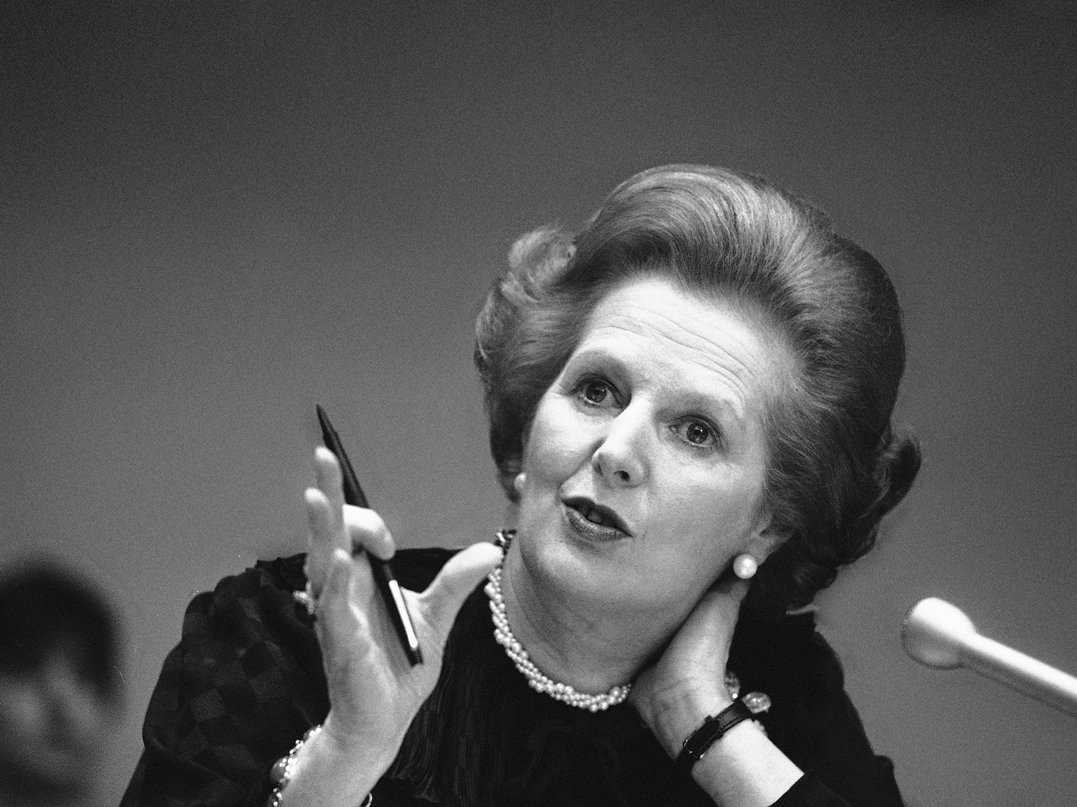With the death of Margaret Thatcher, and the ensuing profusion of commentary on her legacy, it is worth looking back at an overlooked chapter in the Thatcher story. I am referring to her 1981 showdown with the Keynesian establishment—a showdown that the Iron Lady won handily. Before getting caught up with the phony “austerity vs. fiscal stimulus” debate, the chattering classes should take note of how Mrs. Thatcher debunked the Keynesian “fiscal factoid.”
According to the Oxford English Dictionary, a factoid is “an item of unreliable information that is reported and repeated so often that it becomes accepted as fact.” The standard Keynesian fiscal policy prescription for the maintenance of non-inflationary full employment is a fiscal factoid. The chattering classes can repeat this factoid on cue: to stimulate the economy, expand the government’s deficit (or shrink its surplus); and to rein in an overheated economy, shrink the government’s deficit (or expand its surplus).
Even the economic oracles embrace the fiscal factoid. That, of course, is one reason that the Keynesians’ fiscal mantra has become a factoid. No less than Nobelist Paul Krugman repeats it ad nauseam. Now, the new secretary of the treasury, Jack Lew (who claims no economic expertise), is in Europe peddling the fiscal factoid.
Unfortunately, the grim reaper finally caught up with Margaret Thatcher—but not before she laid waste to 364 wrong-headed British Keynesians.
In 1981, Prime Minister Thatcher made a dash for confidence and growth via a fiscal squeeze. To restart the economy, Mrs. Thatcher instituted a fierce attack on the British fiscal deficit, coupled with an expansionary monetary policy. Her moves were immediately condemned by 364 distinguished economists. In a letter to The Times, they wrote a knee-jerk Keynesian response: “Present policies will deepen the depression, erode the industrial base of our economy and threaten its social and political stability.”
Mrs. Thatcher was quickly vindicated. No sooner had the 364 affixed their signatures to that letter than the economy boomed. Confidence in the British economy was restored, and Mrs. Thatcher was able to introduce a long series of deep, free-market reforms.
As for the 364 economists (who included seventy-six present or past professors, a majority of the Chief Economic Advisors to the Government in the post-WWII period, and the president, as well as nine present or past vice-presidents, and the secretary general of the Royal Economic Society), they were not only wrong, but also came to look ridiculous.
In the United States, the peddlers of the fiscal factoid have never suffered the intellectual humiliation of their British counterparts. In consequence, American Keynesians can continue to peddle snake oil with reckless abandon and continue to influence policy in Washington, D.C., and elsewhere.


0 responses on "Margaret Thatcher and the Battle of the 364 Keynesians"